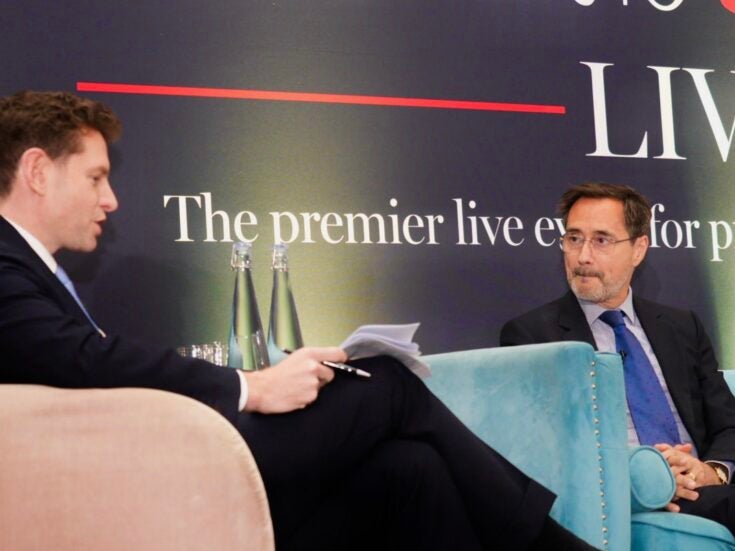
William Cash aims a shotgun of rhetoric at anyone questioning the validity of London as the world’s financial capital post Brexit
The International New York Times have been running a series of doom-laden articles asking which global city will become the new financial capital of the world as a result of Brexit.
Their most recent headline (which caught the attention of the Today programme’s producers this morning) is: ‘London’s days as the pre-eminent global financial capital may be numbered’.
As the Today programme was eager to point out the New York Times has declared that ‘The race is on to be the new London. Unless Britain finds a way to undo its decision to leave the European Union, London’s days as the pre-eminent global financial capital, ranked even ahead of New York, may be numbered’.
The New York Times’ experts have suggested that London’s financial crown is likely to be snatched by either Amsterdam, Frankfurt and Vienna (their top three), with Milan, Paris, Warsaw, Barcelona and Luxembourg also scoring highly as possible rivals to London as the new financial capital of Europe.
Were this not the New York Times, such analysis would be almost risible. Rather than explaining why the liberal paper of political record has got its analysis so wrong the paper quotes its leading Pulitzer Prize winning foreign affairs columnist Thomas L Friedman, who has displayed a dizzying level of naivety in terms of understanding the reasons for
the Brexit vote.
According to the New York Times and the much revered Mr Friedman, the decision of over 17 million British voters to reject the anti-democratic EU elite – and being ruled by Brussels rather than our own elected parliamentary democracy – can be put down to the power of prejudiced and biased British newspapers and the fact that the ignorant British public fell ‘under the sway of a few cynical politicians who see a chance to exploit public fears of immigration to advance their careers… .’
First, this is glib and wrong. Almost all the leading Brexiteer Tory politicians such as Boris Johnson, Michael Gove, Andrea Leadsome, Bill Cash [this writer’s father], Kate Hoey, Bernard Jenkin etc, all fought the Brexit battle on an anti-EU, pro-democracy/sovereignty ticket not an anti-immigration ticket.
In the light of recent events, it would be hard to argue that either Michael Gove or Boris Johnson have exactly advanced their careers by nailing their political colours to the Leave mast. Boris has walked the plank without a life vest and Gove is making a speech today upon which his political future depends.
The Vote Leave campaign (which included the Business for Britain campaign) was launched with a 600 page manifesto called Change or Go, showing the economic benefits of the UK leaving the EU and being free to trade with the 180 or so other countries in the world rather than the customs union protectorate of the EU.
Friedman goes on then to accuse the Leave campaign of ‘dumbing down the debate with lies, fear-mongering and misdirection’. Yet it was the Remain campaign that ran the Project Fear campaign – not the optimists of the Leave campaign who sent out the message that our sovereignty, democracy and freedom was more important than short term growth.
The reason that George Osborne is not standing for leadership of the Tory party is that even he will admit that he was the chief negative architect of Project Fear. So Friedman is simply wrong on this point as well.
The New York Times does not understand how anti-democratic the EU project is as a political project. Friedman, like the unelected EU nonentity bureaucrats he sides with, and appears to approve of, seems to have almost contempt for democracy and the will of the people. As he wrote: ‘if a few more EU countries try this trick we’ll have quite a little mess on our hands’.
The reality is that there is little or no chance of London losing its financial crown to any of the cities analysed by the New York Times. Only a week after the Brexit vote, CITY A.M splashed on their front page a story on how a ‘majority of investors say that London will remain a top financial centre’ saying that two-thirds of institutional investors surveyed by FTI Consulting said the capital was ‘unlikely’ to lose its status as Europe’s financial capital.
The performance of the UK markets, especially the FTSE 100, seem to have confirmed this with the market up 3.6 per cent at 6,360.06 – that’s higher than at any point since April.
On top of this survey, it has emerged in The Times that two of Britain’s largest banks have also brushed off any fears that London will lose its position ‘as the pre-eminent international financial centre’, saying that ‘other countries would struggle to compete’.
Douglas Flint, chairman of HSBC, rubbished suggestions that Paris, Frankfurt, Amsterdam – Warsaw wasn’t mentioned – would be taking business from London. ‘Markets go where the expertise and liquidity are’ he was reported as saying. ‘It is not a question of saying,
‘Please take us’. It is a question of saying, ‘We’ve got something of great benefit to you.’
The Times went on to report that John McFarlane, the Barclays chairman, added that he had serious doubts that Paris could take away ‘the business of clearing euro-denominated securities away from London’ saying that it would be ‘very difficult to extricate’. Both
bank CEOs pointed out that Britain’s markets had ‘successfully weathered the financial strain of the past few days’.
Mr Flint said that HSBC had ‘considered the prospect of a Brexit vote as part of its decision to remain based in the UK’ and added that it was very unlikely that it would move jobs to the continent. He had indicated this year that jobs could move across the Channel in the event of Brexit.
‘If you look at elements of the wholesale business which depended upon passporting rights, if you thought we were going to lose all of those passporting rights, to take one extreme, it could be up to 1,000 jobs’.
If the New York Times is proved right, we can look forward to seeing Michael Lewis (author of The Big Short and Liar’s Poker) writing a financial novel about how Warsaw has overtaken London as the hedgie capital of the world; or as Tom Wolfe wrote of New York in the 1980s: ‘the irresistible destination of those who insist on being where things are happening’.







